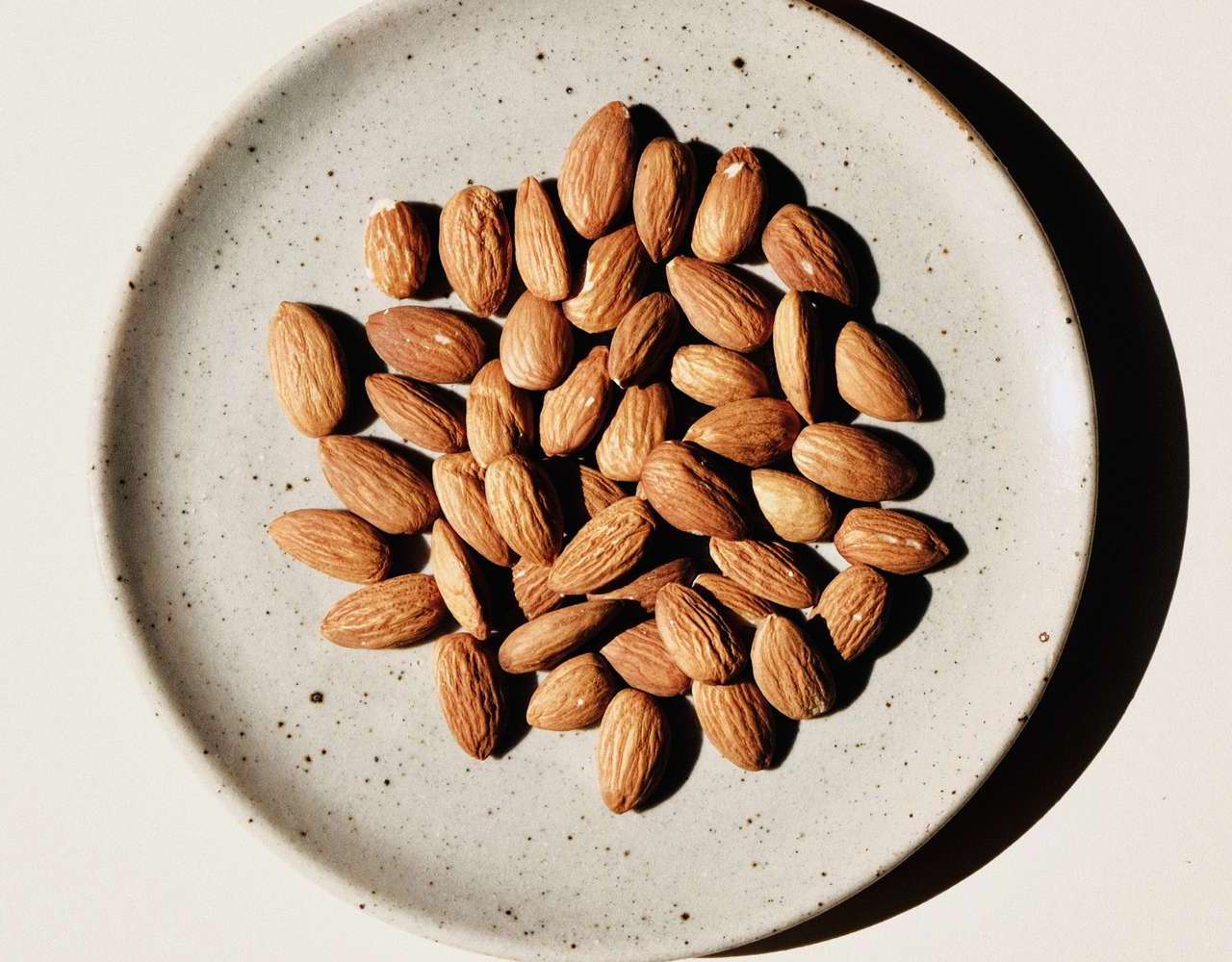
10 Foods That Will Help You Sleep Better
Sleep is an essential part of our daily routine, and it plays a crucial role in maintaining our overall health and well-being. However, many people struggle with falling asleep or staying asleep throughout the night. While there are various factors that can affect sleep quality, including stress and environmental factors, our diet can also have a significant impact on the quality of our sleep.
Importance of Quality Sleep
Before we dive into the foods that can help improve sleep, let’s understand why quality sleep is important. Adequate sleep is essential for our physical and mental health. It helps in restoring and rejuvenating our body, boosting our immune system, improving cognitive function, and regulating our mood. Lack of sleep can lead to various health issues, including increased risk of chronic conditions like obesity, diabetes, and cardiovascular diseases.
Quality sleep is essential for overall health and well-being. It plays a crucial role in various aspects of our lives, including physical health, mental clarity, emotional balance, and productivity. Here are some key reasons why quality sleep is important:
1. Physical Health: Quality sleep is vital for the proper functioning of our body and the maintenance of good physical health. During sleep, our body repairs and rejuvenates itself. It helps in the healing and growth of tissues, strengthens the immune system, and regulates various bodily functions. Lack of quality sleep has been linked to an increased risk of developing chronic health conditions such as obesity, diabetes, cardiovascular diseases, and weakened immune system.
2. Mental Clarity and Cognitive Function: Getting enough quality sleep is crucial for optimal brain function. It enhances cognitive abilities such as attention, concentration, memory, and problem-solving skills. When we sleep, our brain consolidates and processes information, making it easier for us to learn and retain new information. Lack of sleep can lead to cognitive impairment, decreased productivity, poor decision-making, and difficulty in focusing and concentrating.
3. Emotional Well-being: Quality sleep is closely linked to emotional well-being and mental health. Sufficient sleep helps regulate our emotions, improves mood, and reduces the risk of developing mental health disorders such as depression and anxiety. On the other hand, chronic sleep deprivation can lead to emotional instability, irritability, mood swings, and an increased risk of developing mental health issues.
4. Energy and Productivity: Quality sleep is essential for maintaining high energy levels

How Diet Affects Sleep
The food we consume can influence our sleep patterns. Certain foods contain nutrients that promote relaxation, regulate hormones, and enhance the production of sleep-inducing chemicals in our brain. On the other hand, some foods can disrupt sleep by causing discomfort, indigestion, or stimulating our body.
The food we consume can have a significant impact on the quality of our sleep. Our diet affects sleep in several ways, including the regulation of hormones, the production of sleep-inducing chemicals, and the overall functioning of our body.
Here are some key ways in which diet affects sleep:
1. Regulation of Hormones: Certain foods contain nutrients that help regulate hormones involved in sleep. For example, tryptophan, an amino acid found in foods like turkey, bananas, and milk, is a precursor to serotonin and melatonin, both of which play a crucial role in promoting sleep. Consuming foods rich in tryptophan can aid in the production of these sleep-inducing hormones.
2. Production of Sleep-Inducing Chemicals: Some foods contain natural compounds that can enhance the production of sleep-inducing chemicals in the brain, such as melatonin. Tart cherries, for example, are a natural source of melatonin and can help regulate the sleep-wake cycle. Consuming foods with high melatonin content, or those that support its production, can promote better sleep.
3. Balance of Blood Sugar Levels: The balance of blood sugar levels is essential for maintaining stable energy levels and promoting restful sleep. Consuming foods high in refined sugars and carbohydrates can cause fluctuations in blood sugar levels, leading to energy crashes and difficulty falling asleep. Opting for whole grains, fruits, vegetables, and lean proteins can help stabilize blood sugar levels and support better sleep.
4. Regulation of Body Weight: Diet plays a crucial role in maintaining a healthy body weight, which is linked to better sleep quality. Obesity and excess weight can contribute to sleep disorders, such as sleep apnea and insomnia. A balanced diet that includes nutrient-dense foods can help maintain a healthy weight and improve sleep quality.
5. Reduction of Inflammation: Chronic inflammation in the body can disrupt sleep patterns and contribute to sleep disorders. Certain foods, such as fatty fish rich in omega-3 fatty acids, nuts, seeds, and fruits and vegetables high in antioxidants, have anti-inflammatory properties. Including these foods in your diet can help reduce inflammation and promote better sleep.
6. Digestive Comfort: The foods we eat can affect our digestive system, and discomfort or indigestion can make it difficult to fall asleep or stay asleep throughout the night. Spicy, fatty, and heavy meals can cause acid reflux, heartburn, or bloating, leading to sleep disruptions. Choosing lighter, easily digestible meals, and avoiding heavy meals close to bedtime can promote better sleep.
7. Nutrient Support: A well-balanced diet provides essential nutrients that support overall health, including sleep. Nutrients like magnesium, calcium, vitamins B6 and C, and antioxidants play a role in the production of sleep-regulating hormones, relaxation of muscles, and regulation of neurotransmitters. Consuming a variety of nutrient-rich foods can ensure you’re getting the support your body needs for quality sleep.
By paying attention to your diet and incorporating sleep-friendly foods, you can optimize your sleep quality. However, it’s important to note that diet is just one aspect of promoting good sleep. It’s also crucial to consider other lifestyle factors, such as creating a soothing sleep environment, managing stress, and maintaining a consistent sleep schedule, to ensure a holistic approach to better sleep.
Foods to Avoid Before Bed
Before we discuss the foods that can help improve sleep, it’s important to know which foods to avoid before bedtime. Avoid consuming foods that are high in caffeine, such as coffee, tea, and energy drinks, as they can interfere with falling asleep. Spicy and heavy meals should also be avoided, as they can cause indigestion and discomfort, making it difficult to sleep peacefully.
Foods that Promote Better Sleep
Now, let’s explore the top 10 foods that can help you sleep better:
Tart Cherries
Tart cherries are a natural source of melatonin, a hormone that regulates the sleep-wake cycle. Consuming tart cherry juice or eating a handful of cherries before bed can increase melatonin levels in the body, promoting better sleep.
Almonds
Almonds are an excellent source of magnesium, a mineral that plays a vital role in promoting sleep. Magnesium helps relax muscles and calm the nervous system, making it easier to fall asleep. Snacking on a handful of almonds can be a healthy and sleep-friendly option.
Kiwi
Kiwi is not only a delicious fruit but also a sleep aid. It contains antioxidants and serotonin, which can help regulate sleep patterns. Consuming a kiwi before bedtime may improve sleep quality and reduce the time it takes to fall asleep.
Warm Milk
The age-old remedy of warm milk before bed has a scientific basis. Milk contains tryptophan, an amino acid that promotes the production of serotonin and melatonin, both of which are important for a good night’s sleep. A warm glass of milk can help relax the body and induce sleepiness.
Bananas
Bananas are rich in potassium and magnesium, which are known to relax muscles and promote sleep. They also contain tryptophan, which is converted into serotonin and melatonin. Eating a banana before bed can help improve sleep quality.
Fatty Fish
Fatty fish, such as salmon, trout, and mackerel, are excellent sources of omega-3 fatty acids. These healthy fats have been linked to improved sleep quality. Omega-3 fatty acids help reduce inflammation and promote the production of sleep-inducing hormones.
Whole Grains
Whole grains, such as oats and quinoa, are complex carbohydrates that can increase the production of serotonin in the brain. Serotonin is a neurotransmitter that helps regulate sleep. Consuming a small portion of whole grains a few hours before bed can promote better sleep.
Herbal Teas
Certain herbal teas, such as chamomile and lavender, have calming properties that can aid in relaxation and promote better sleep. Sipping on a warm cup of herbal tea before bed can create a soothing bedtime ritual and improve sleep quality.
Dark Chocolate
Dark chocolate, in moderation, can be a sleep-friendly treat. It contains serotonin and magnesium, which can help relax the body and promote sleep. Opt for dark chocolate with a high cocoa content for maximum benefits.
Turkey
Turkey is a lean meat that is rich in tryptophan, an amino acid that promotes the production of sleep-regulating hormones. Including turkey in your dinner can help improve sleep quality.
Incorporating Sleep-Friendly Foods into Your Diet
Incorporating sleep-friendly foods into your diet is a simple and effective way to improve the quality of your sleep. By making conscious choices and including these foods in your meals and snacks, you can create a sleep-promoting environment for your body and mind.
Here are some tips for incorporating sleep-friendly foods into your diet:
- Plan Your Meals: Take some time to plan your meals in advance, ensuring that you include sleep-friendly foods in your menu. Consider adding tart cherries, almonds, kiwi, and other sleep-inducing foods to your grocery list.
- Snack Smart: Instead of reaching for unhealthy snacks before bed, opt for sleep-friendly options. Keep a stash of almonds, bananas, or dark chocolate handy for when you feel hungry before bedtime.
- Create Sleep-Friendly Recipes: Get creative in the kitchen and experiment with recipes that incorporate sleep-friendly foods. For example, you can make a tart cherry smoothie with almond milk, or prepare a quinoa salad with fatty fish like salmon.
- Make it a Ritual: Incorporating sleep-friendly foods into your diet can become a relaxing bedtime ritual. Enjoy a warm cup of herbal tea with chamomile or lavender before bed, along with a small portion of dark chocolate for a soothing treat.
- Time Your Meals: It’s important to time your meals properly to allow for digestion before sleep. Aim to have your dinner at least two to three hours before bedtime, giving your body enough time to process the food.
- Portion Control: While sleep-friendly foods are beneficial, it’s still essential to practice portion control. Overeating, especially close to bedtime, can lead to discomfort and disrupt your sleep. Be mindful of your portion sizes and listen to your body’s hunger and fullness cues.
- Be Consistent: Consistency is key when incorporating sleep-friendly foods into your diet. Aim to include these foods regularly in your meals and snacks. Consistency helps regulate your body’s natural sleep-wake cycle and promotes better sleep quality over time.
Remember, incorporating sleep-friendly foods into your diet is just one piece of the puzzle. It’s important to also consider other lifestyle factors that contribute to good sleep, such as maintaining a consistent sleep schedule, creating a relaxing bedtime routine, and managing stress levels.
By combining a balanced diet with a healthy lifestyle, you can create an optimal environment for restful and rejuvenating sleep. So start making conscious choices and prioritize sleep-friendly foods to enjoy the benefits of a good night’s sleep.
Other Lifestyle Factors for Better Sleep
In addition to incorporating sleep-friendly foods into your diet, there are several other lifestyle factors that can significantly contribute to better sleep. By paying attention to these factors, you can create a sleep-friendly environment and promote quality rest.
Here are some important lifestyle factors to consider for better sleep:
1. Maintain a Consistent Sleep Schedule: Establishing a regular sleep schedule is crucial for regulating your body’s internal clock. Try to go to bed and wake up at the same time every day, even on weekends. Consistency helps train your body to recognize when it’s time to sleep, making it easier to fall asleep and wake up naturally.
2. Create a Relaxing Bedtime Routine: Engaging in a calming routine before bed can signal to your body that it’s time to wind down and prepare for sleep. Create a routine that suits you, whether it involves reading a book, taking a warm bath, practicing relaxation techniques like deep breathing or gentle stretching, or listening to soothing music.
3. Create a Sleep-Friendly Environment: Your bedroom environment plays a significant role in promoting quality sleep. Make sure your bedroom is cool, quiet, and dark. Use blackout curtains or an eye mask to block out any unwanted light, and consider using earplugs or a white noise machine to mask any disruptive sounds. Invest in a comfortable mattress, pillows, and bedding that support your sleep needs.
4. Manage Stress Levels: Stress and anxiety can significantly impact your sleep quality. Take steps to manage stress throughout the day by practicing stress-reducing techniques such as mindfulness meditation, yoga, or journaling. If you find it challenging to manage stress on your own, consider seeking support from a therapist or counselor.
5. Limit Electronic Device Use Before Bed: The blue light emitted by electronic devices, such as smartphones, tablets, and laptops, can interfere with your body’s production of melatonin, a hormone that regulates sleep. Avoid using electronic devices at least an hour before bed, or use blue light-blocking glasses to minimize the impact.
6. Engage in Regular Exercise: Regular physical activity can promote better sleep by reducing stress, boosting mood, and promoting relaxation. Aim for at least 30 minutes of moderate-intensity exercise most days of the week. However, try to avoid vigorous exercise close to bedtime, as it can stimulate your body and make it harder to fall asleep.
7. Limit Caffeine and Alcohol Intake: Both caffeine and alcohol can disrupt your sleep patterns. Avoid consuming caffeine, found in coffee, tea, energy drinks, and chocolate, at least six hours before bed. While alcohol may initially make you feel sleepy, it can disrupt the later stages of sleep, leading to fragmented and less restorative sleep.
8. Create a Sleep-Friendly Mindset: Cultivate a positive mindset around sleep by reframing any negative thoughts or worries about sleep. Instead of dwelling on the idea of not being able to sleep, focus on creating a relaxing and comfortable sleep environment and trust in your body’s ability to fall asleep naturally.
By incorporating these lifestyle factors into your daily routine, along with a balanced diet and sleep-friendly foods, you can optimize your chances of achieving restful and rejuvenating sleep. Remember, it may take time to establish new habits, so be patient and persistent in your efforts to improve your sleep quality.
Conclusion
Incorporating sleep-friendly foods into your diet can be a simple yet effective way to improve sleep quality. From tart cherries to dark chocolate, these foods contain essential nutrients that promote relaxation, regulate hormones, and enhance sleep-inducing chemicals in the brain. Remember to combine a healthy diet with other lifestyle factors for optimal sleep benefits.
Frequently Asked Questions
Can eating certain foods really help me sleep better?
Yes, certain foods contain nutrients that promote relaxation, regulate hormones, and enhance the production of sleep-inducing chemicals in the brain, thus improving sleep quality.
When is the best time to consume sleep-friendly foods?
It’s recommended to consume sleep-friendly foods a few hours before bed to allow sufficient time for digestion.
Can eating too much before bed disrupt sleep?
Consuming heavy meals before bed can cause discomfort and indigestion, making it difficult to sleep peacefully. It’s best to opt for light and sleep-friendly snacks.
Is it necessary to avoid caffeine before bed for better sleep?
Yes, caffeine is a stimulant that can interfere with falling asleep. It’s best to avoid consuming foods and beverages high in caffeine before bedtime.
Can lifestyle factors other than diet affect sleep quality?
Yes, lifestyle factors such as maintaining a consistent sleep schedule, creating a sleep-friendly environment, managing stress levels, and engaging in regular exercise can significantly impact sleep quality.



